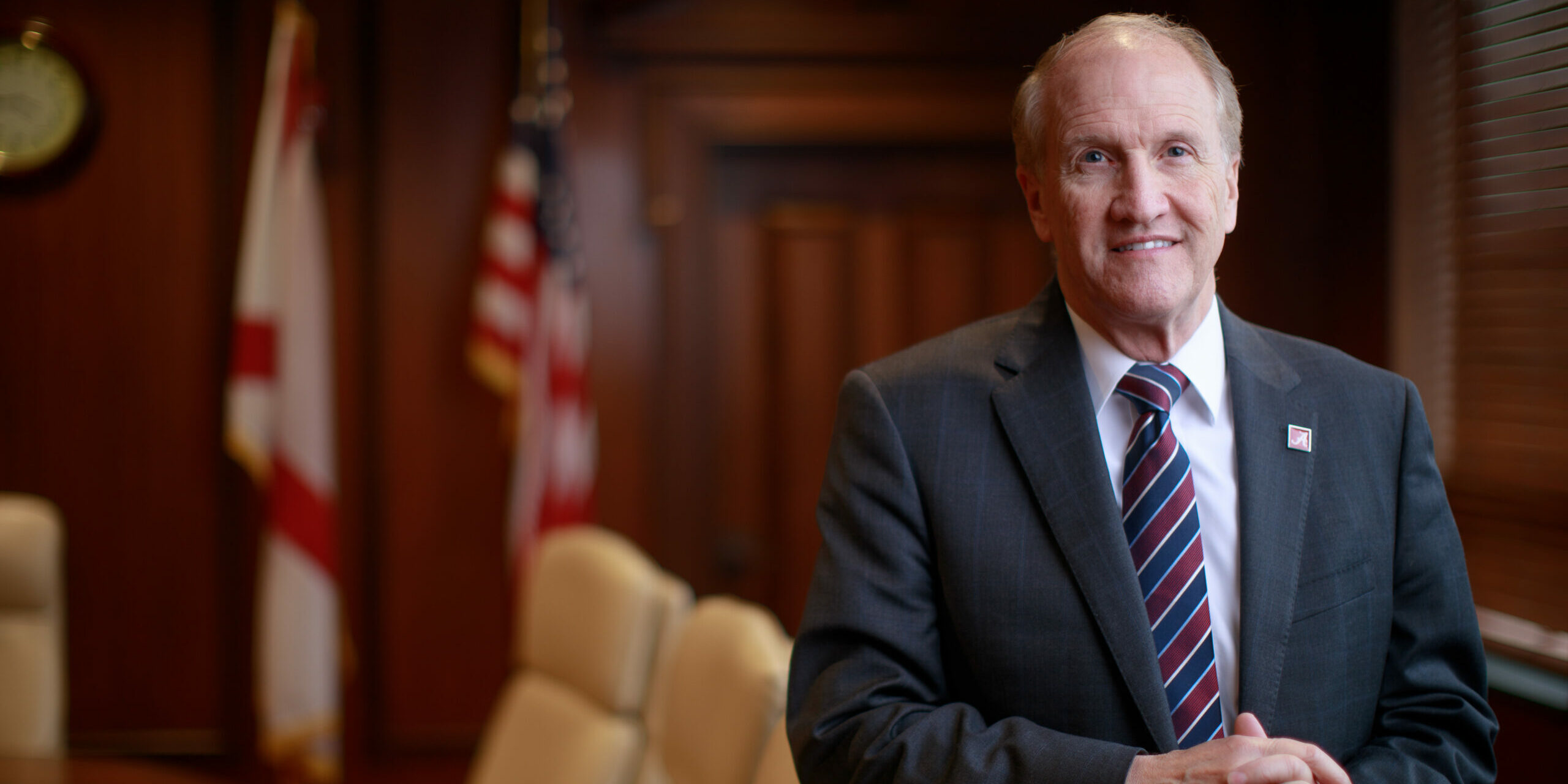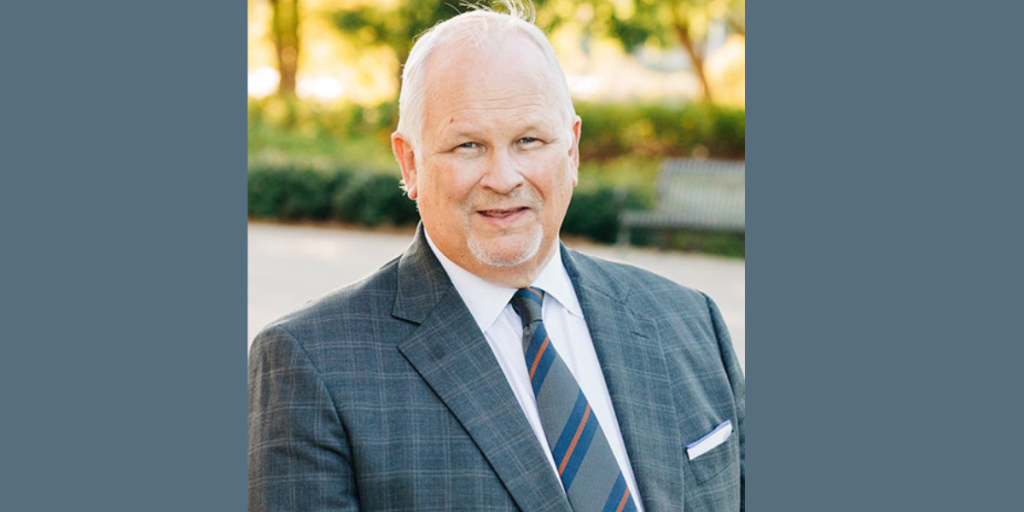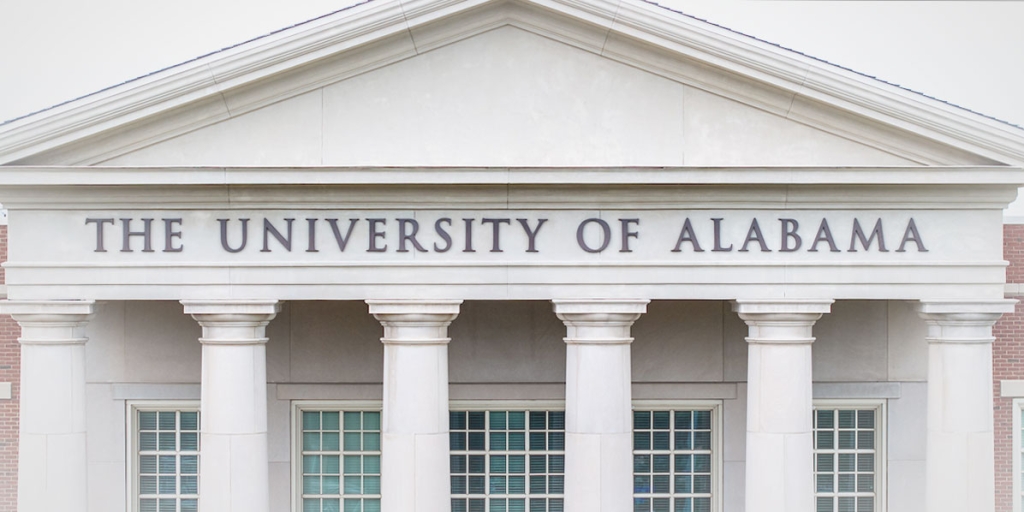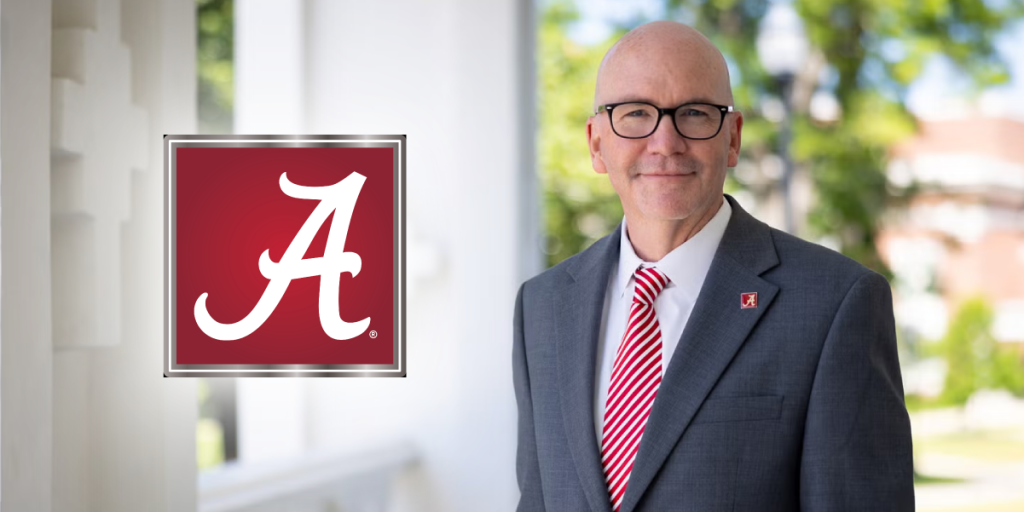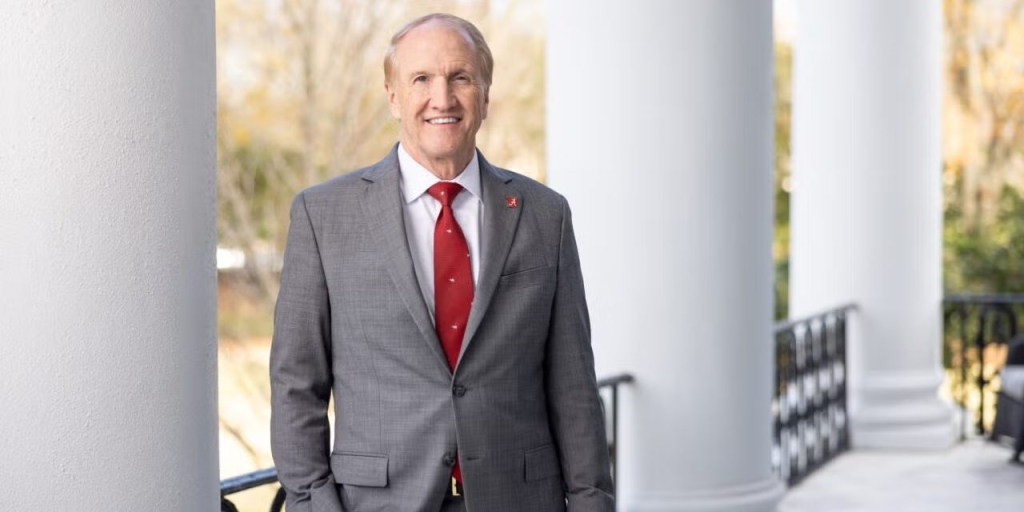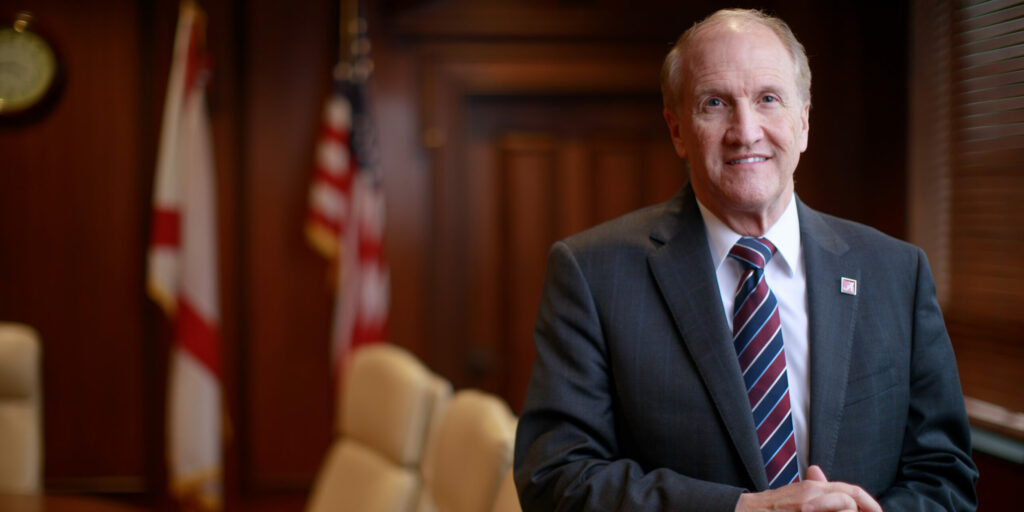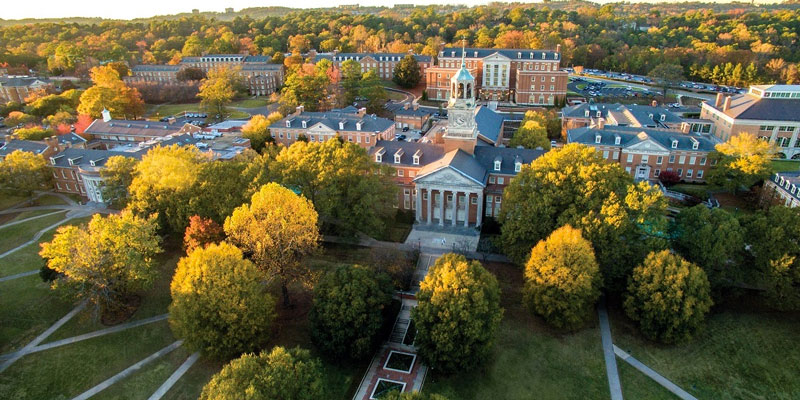A few weeks into the fall semester at the University of Alabama, a record-high number of students were walking to and from classes on a sunny morning when Yellowhammer News sat down with Dr. Stuart Bell.
This is Bell’s eighth year welcoming a freshman cohort to campus as president of the university.
“If you’re ever having a bad day, go and have a conversation with our students,” Bell said. “You’ll know our future is really bright.”
With overall enrollment projected to exceed 39,000 students at the Capstone this year – up from 38,643 the year prior – Bell doesn’t have to walk far to find a student eager to talk.
By sheer numbers, the chances he’ll cross paths with a National Merit Scholar are better than any year previous, as Bell reports a record amount of recipients in this year’s class.
RELATED: UA named Fulbright Top Producer
Between enrollment, breakthrough success in research activity, campus growth, achievements by faculty and, of course, championships, Bell keeps track of a lot of statistics.
“I’m an engineer by training, so I love numbers,” he said.
He believes all those numbers paint a picture of why UA makes a strong case to talented students figuring out where they want to get their degree from. That case is especially strong to students within the state, as 2023 will mark the highest in-state enrollment since 2010.
“When students come to the University of Alabama, they are getting the same experience or a better experience than they could at any other leading institution in the fields that they want to study,” Bell said.
A major factor in that confidence involves a commitment to research, which has scaled significantly under Bell’s tenure. In 2018, UA received the nation’s highest designation for research activity by the Carnegie Classification.
Bell pointed to a recent $360 million grant to study and improve the nation’s prediction of water-related hazards. It marks the largest external award in the university’s history.
“We’re leading 29 other institutions from the United States. The University of Alabama is leading that group, studying the impacts of water for our country, and how important it is,” Bell said, highlighting the global scale of the work.
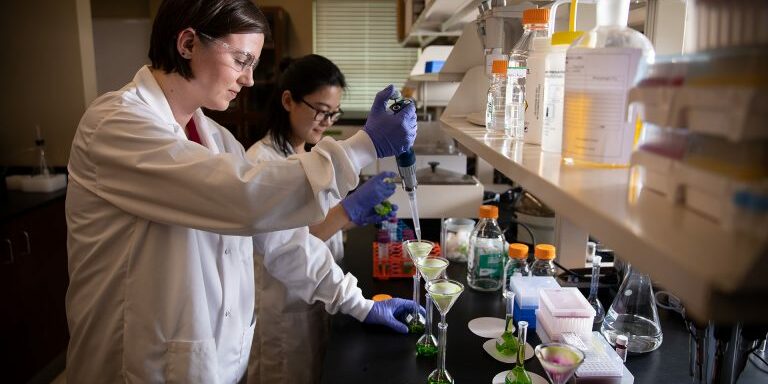
He praised UA’s faculty for their passion and commitment to major undertakings like this.
“When I came to campus, I listened to faculty. ‘What do they want to do? Where does faculty want to be?’ They were very clear,” he said. “‘These are the areas that we see we have great expertise and we would like the University to help us become more successful. ‘Invest in us, invest in our programs, so that we can do the things that we think are important for our state and our nation. Through our research.’
“So, that’s the pathway that we’ve been on. And it’s just a great success.”
The benefit of those outside investments starts local, reaching laboratories and classrooms, doctoral and undergraduate students alike.
“Your experience here is all about making sure that when you go out and work in an industry, in the corporate world, at an NGO, you’re taking with you an experience that is not just ‘here’s how we do things today – but here’s how we’re going to do things five years from now.’” he said.
“We do a really great job of involving students in our research.”
RELATED: UA to develop fastest computing system in state
That immersion in the classroom and emphasis on real-world learning opportunities tracks with a discernible output: 93% of UA students have a job within six months of graduating.
“We have been very focused on making sure our students have the opportunity to get that and we’re up to date,” Bell said. “We continue to invest in that, certainly if you take a look at our facilities.”
Just this month, UA announced a $44 million U.S. Department of Commerce grant will contribute to the creation of a cutting-edge computing center on campus that will supercharge the University’s ability to engage in high-tech, high-security research.
Bell said he’s proud of the 29 construction projects completed on campus this summer.
Particularly, the newly opened Greek Assembly Hall, benefitting Greek students whether or not they have a fraternity or sorority house on campus, as well as the Randall Welcome Center, which will be many students’ first impression of their official Capstone experience.
The Smith Family Center for the Performing Arts is arguably the most exciting item in UA’s capital construction queue.

Bell spoke glowingly of those projects and the resource they will offer students. In fact, Bell related almost every subject discussed to the bottom-line, student-focused mission of UA.
“When you drive into the university, you see a sign. That sign that really talks about our mission, and it is, ‘Teaching, Research and Service.’ Those really are not separate. They all go together,” Bell said.
When asked about the U.S. Supreme Court ruling in June that now prohibits race as a factor in college admissions, ending affirmative action policies in use at institutions such as Harvard and the University of North Carolina, Bell was upfront.
“To be really clear, the University of Alabama does not, and will not, base admissions on race,” he said. “We want the University of Alabama to be open, accessible, and I mean economically accessible, and successful, for Alabama students, whoever they are, and wherever they are in our state.”
He related it to the UA System’s decision to not raise in-state tuition this year, which has been the case for six out of the past seven years.
“We do that so students can afford a great education, and students can find themselves at the University of Alabama,” Bell said. “As an in-state student, wherever you are in our campus, you can succeed here. We’re laser focused on making sure that we provide all the opportunities – that is great scholarships, great support programs.
RELATED: UA System: No tuition increase for in-state students
“We have students from the state of Alabama for whom this is their first step to living outside of a small community – we can help them with that transition. We have support programs that show them what they can expect to find. And why do we do that? We do that so that at the end of the day, they will be more successful.”
“Fundamentally, we help young people achieve their dreams and be successful.”
As the “Where Legends Are Made” campaign tells blockbuster stories of students’ experiences at the Capstone and their future beyond, Bell shared one of his own.
“I had a conversation for about 15 minutes last night with a dad and his son,” Bell said. “He was explaining to me what the son wanted to accomplish. The dad said, ‘you know, I don’t have a college degree. I didn’t go through that process. I need to know how can I help my son?’
“And it’s in that moment that you realize what your mission is. ‘We’re gonna make an application. I want you to come and visit me in my office. He wants to be an engineer – doesn’t know how to become an engineer. Here’s how you’re going to do it. Okay. We’ll probably go the STEM MBA program because you may be able to get an MBA on top of that engineering degree, which could take you anywhere in the world.’
“After you have that conversation, you go, ‘Okay. I need to have more of these.’
“Because that’s fundamentally what we do.”
Grayson Everett is a staff writer for Yellowhammer News. You can follow him on Twitter @Grayson270




